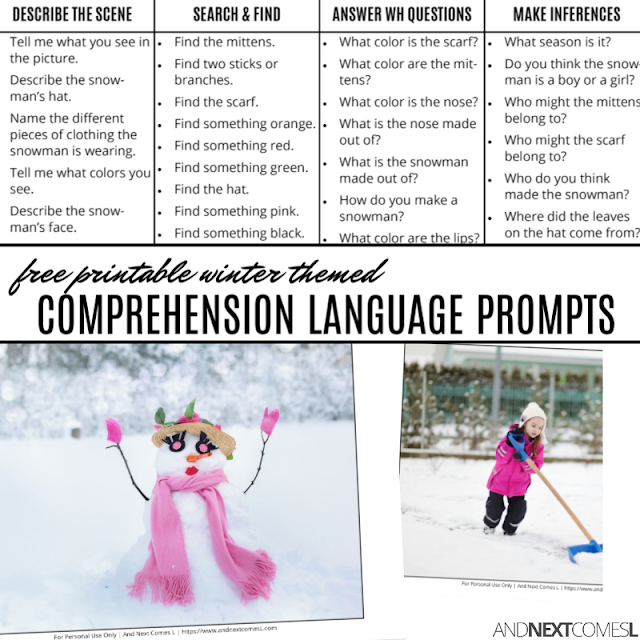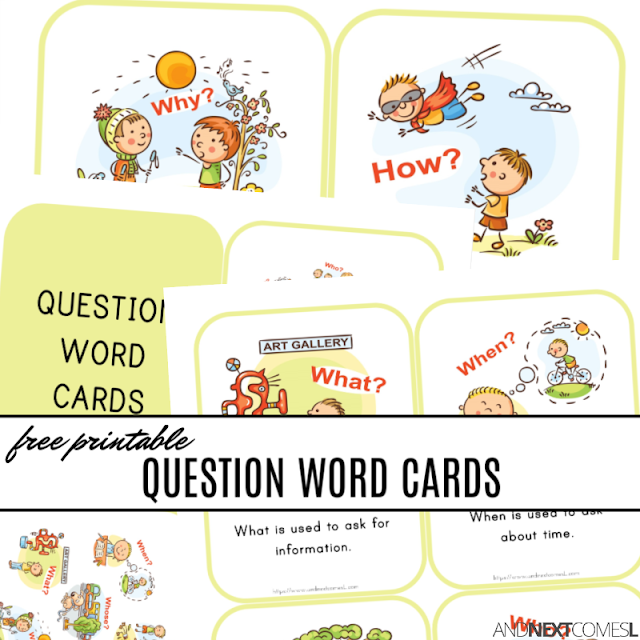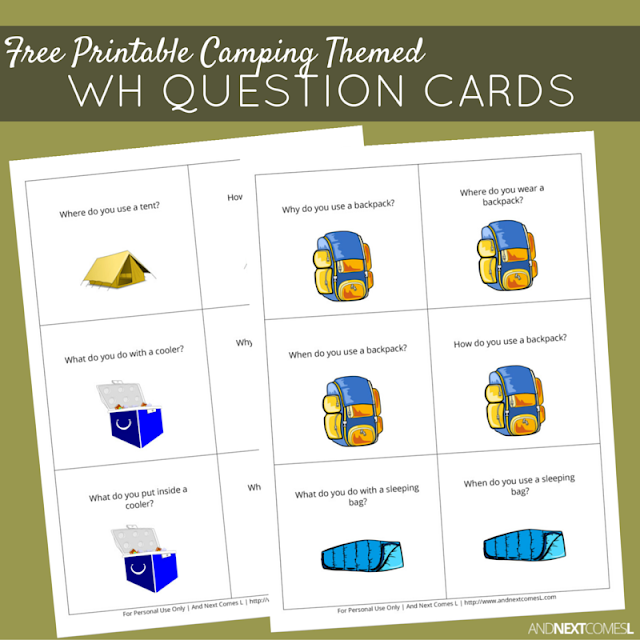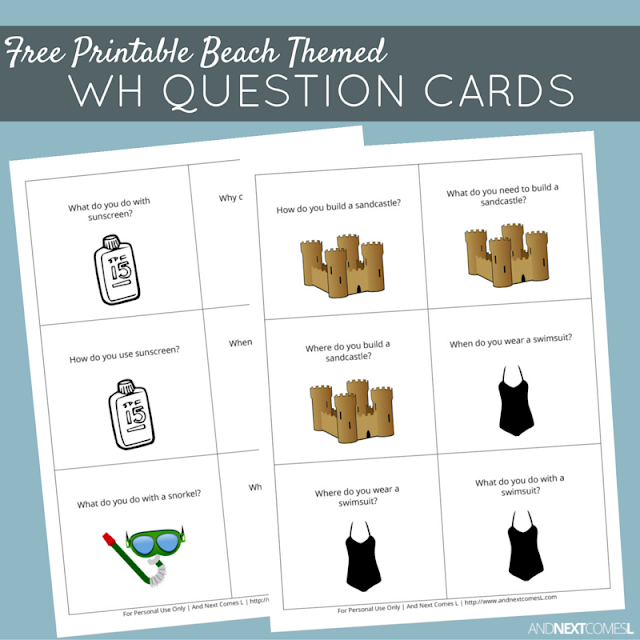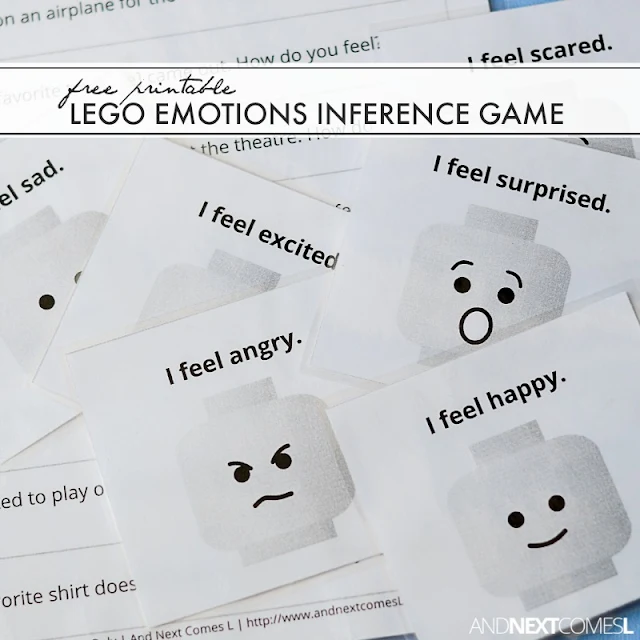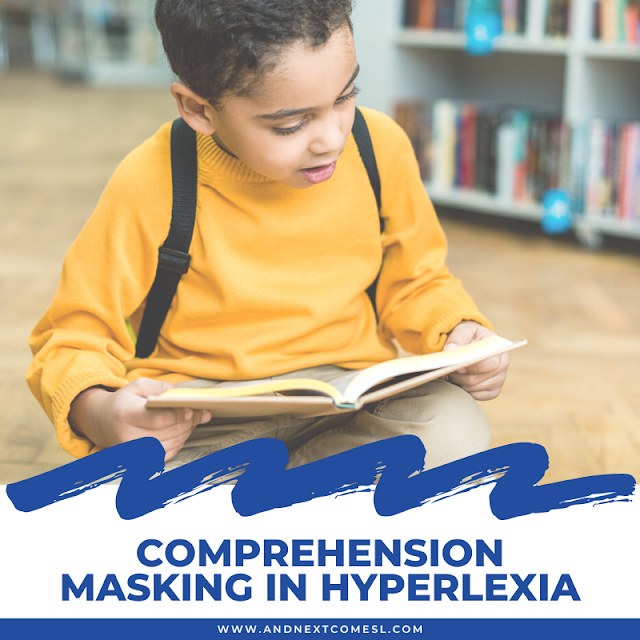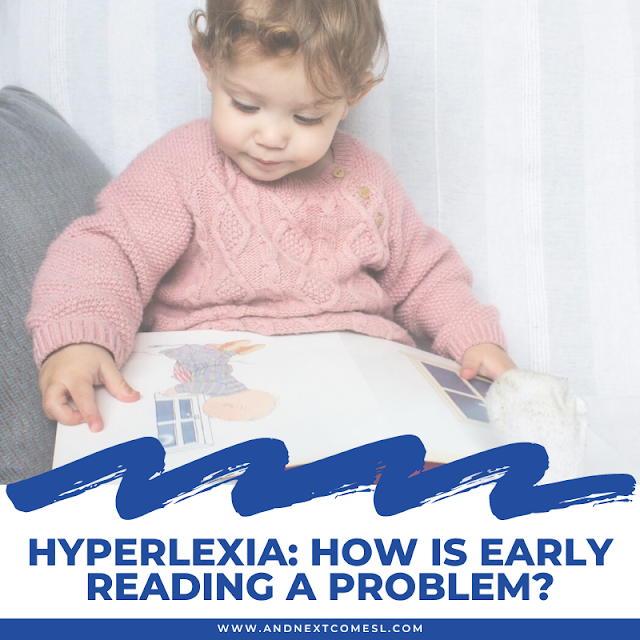Most hyperlexic learners have comprehension difficulties (it's a key feature of hyperlexia, just as much as the early reading piece is!), as do many autistic kids. For us, personally, as a family, reading comprehension has been a constant struggle, but an area that we continually prioritize and work on developing.
But how exactly do you improve reading comprehension and inferencing with hyperlexic learners?
I mean, there are so many skills involved when it comes to reading with comprehension, from understanding WH questions (who, what, where, when, and why) to inferencing from pictures or in a sentence...
There's just so much at play. And it can be a bit overwhelming to know where to start or what to try.
Below you will find lots of worksheets, strategies, tips, games, and activities to help kids practice and improve their reading comprehension ability. You'll also find other useful resources for understanding the comprehension difficulties that accompany hyperlexia.
This post contains affiliate links. Basically, I make a small commission when you use these links, at no additional cost to you.
Reading Comprehension Strategies & Tips
This section is all about tips and strategies for helping kids with reading comprehension and WH questions skills.
While the following strategies can be used with any child, the focus around here is hyperlexia so you'll find specific ideas in this articles that are tailored to help hyperlexic kids improve their reading comprehension skills. You'll also find printable resources and visual supports to help.
-
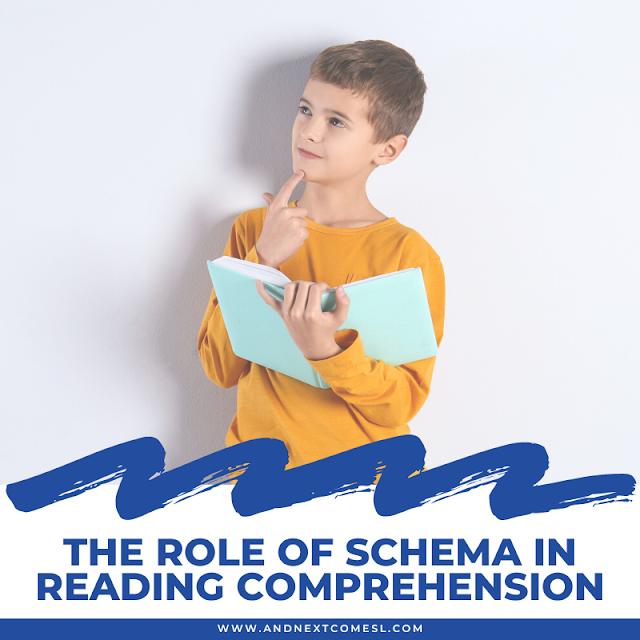
SCHEMA IN READING COMPREHENSION
-
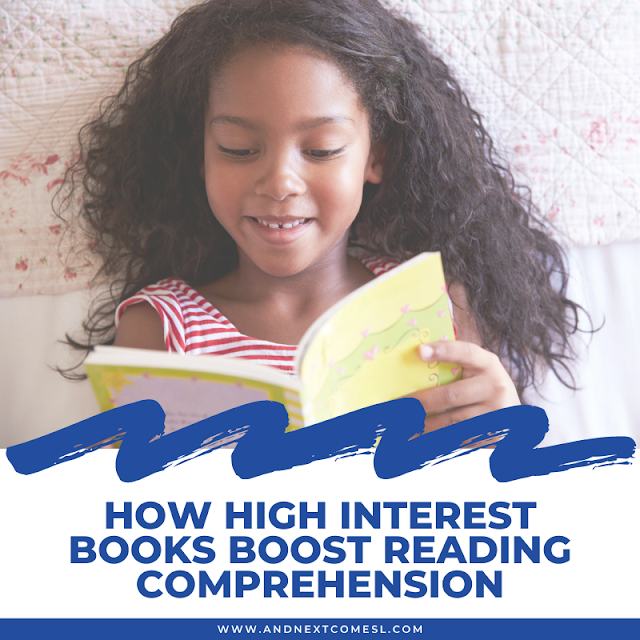
HIGH INTEREST BOOKS & COMPREHENSION
-

READING COMPREHENSION VIDEOS
-

WHAT ARE SIGNAL WORDS?
-

FREE SIGNAL WORDS CARDS PRINTABLE
-

PICTURE WALK READING STRATEGY
-

QUESTIONS TO ASK WHEN DOING A PICTURE WALK
-
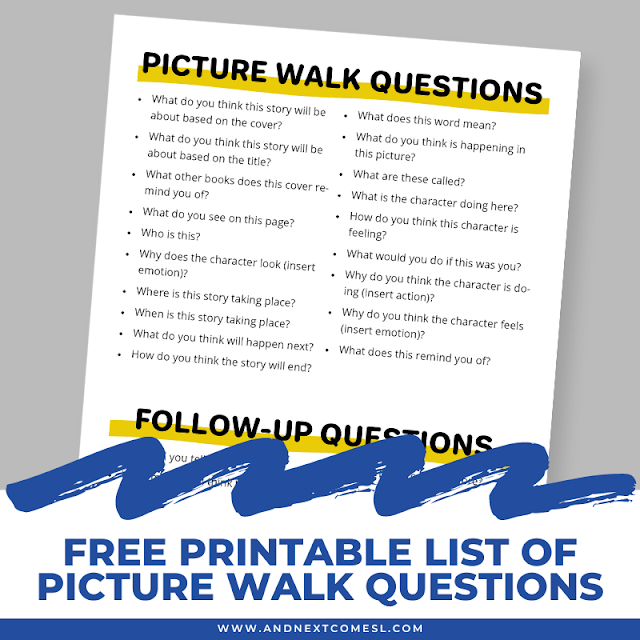
FREE PRINTABLE LIST OF PICTURE WALK QUESTIONS
-

IMPROVE COMPREHENSION WITH MATH SIGNAL WORDS
-

FREE LIST OF MATH SIGNAL WORDS
-

MAKING CONNECTIONS READING STRATEGY
-

ANSWERING WH QUESTIONS CHEAT SHEET
-

FREE MAKING CONNECTIONS SCRIPTS
-

MAKING CONNECTIONS PROMPT CARDS
-

CLOSED CAPTIONING FOR COMPREHENSION
-
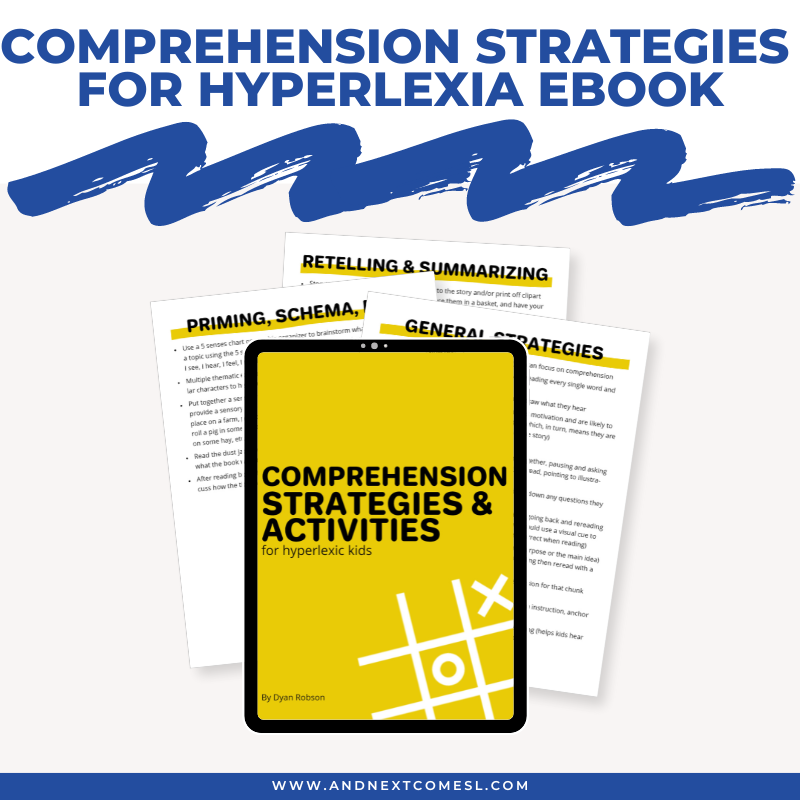
COMPREHENSION STRATEGIES & ACTIVITIES EBOOK
-
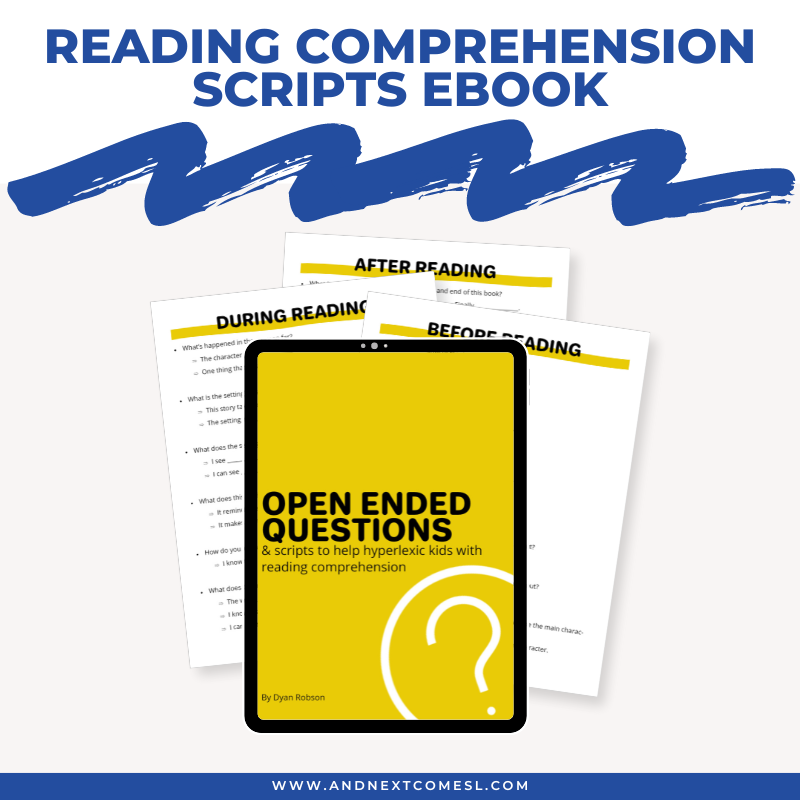
READING COMPREHENSION SCRIPTS EBOOK
-

HOW TO TEACH WH QUESTIONS
-

USE BOOKS WITH SPEECH BUBBLES
Comprehension Worksheets, Games, & Activities
Ready to start practicing and applying what you've learned? Well, the following printable resources are designed to build your child's skills in reading comprehension and give them an opportunity to practice the skills that they're learning.
Graphic Organizers for Comprehension
Graphic organizers are an excellent tool for boosting comprehension and checking understanding. Here are some options you can try with your hyperlexic learners:
-

WHAT ARE GRAPHIC ORGANIZERS?
-
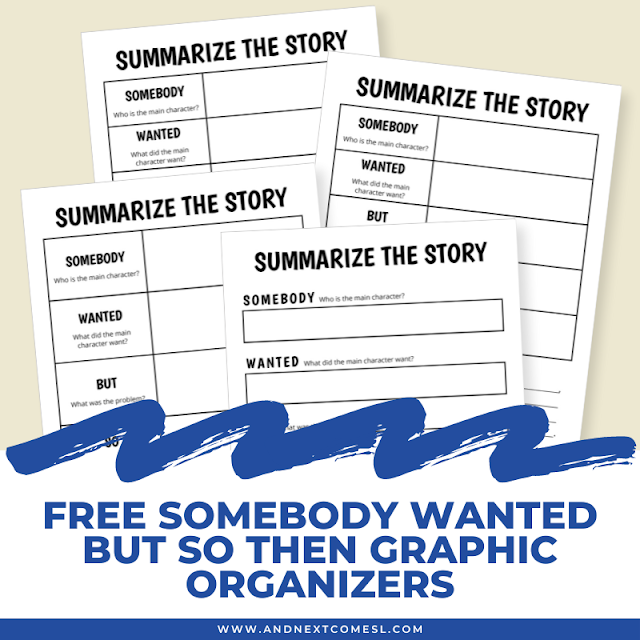
SOMEBODY WANTED BUT SO THEN GRAPHIC ORGANIZERS
-

ICE CREAM CONE MAIN IDEA GRAPHIC ORGANIZER
-

WHAT I KNOW GRAPHIC ORGANIZERS
-

MAIN IDEA PIZZA GRAPHIC ORGANIZERS
-
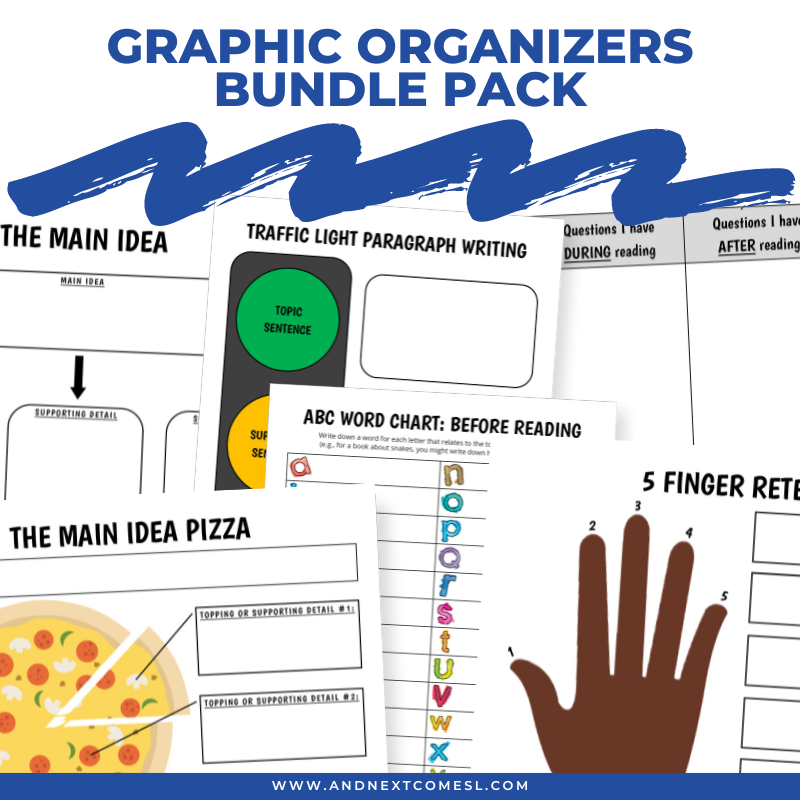
GRAPHIC ORGANIZERS BUNDLE PACK
-

FLOWER MAIN IDEA GRAPHIC ORGANIZERS
-
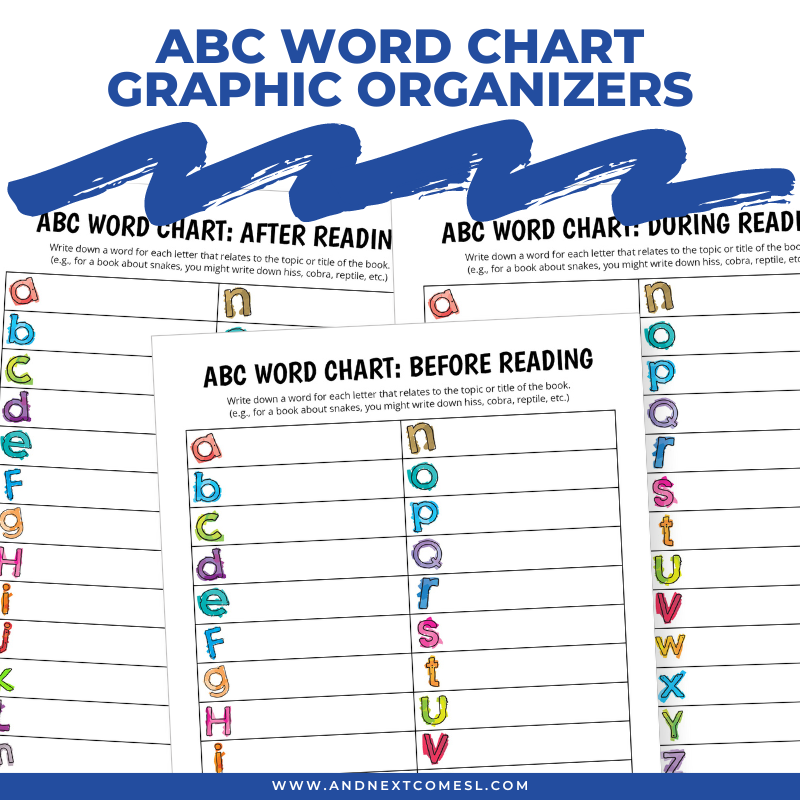
ABC WORD CHART GRAPHIC ORGANIZERS
-

5 FINGER RETELL GRAPHIC ORGANIZERS
-

FREE KWL CHARTS
Free Printable WH Questions Activities, Games, Exercises, & Worksheets
WH questions (i.e., questions that use who, what, where, when, and why) can be tricky and confusing, especially for hyperlexic learners. So it's important to teach about WH questions directly.
That's why you'll find free printable posters and cards that teach what the different WH question words mean and the scripted responses that usually go with them.
You'll also find lots of themed WH question exercises and worksheets to help kids practice what they learn further. Because learning to confidently answer WH questions is a great step towards improving your child's overall reading comprehension!
Inferencing Activities, Ideas, & Printables
Another challenge hyperlexic learners involves making inferences from pictures and/or from a text. In particular, they can find it difficult to find underlying meanings in the text, summarize the main idea of the story, and make relevant predictions about what might happen next. Especially as texts become more complicated as they age (hint: grade four seems to be the time period where comprehension difficulties become quite noticeable in hyperlexia).
That's why it's important to teach kids how to make inferences in reading and to practice the skill often.
Below you'll find lots of free printable inference worksheets and activities to help target this particular reading skill.
Hyperlexia & Comprehension Specific Resources
Like I mentioned previously, hyperlexia is our focus around here. So if you want to learn more about the comprehension challenges that are common to hyperlexia, then you might find these resources (as well as the following sections) helpful.
The following articles, in particular, discuss comprehension related challenges to varying degrees, with some offering deeper insights into the challenges and others offering smaller tidbits of relevant information.
Useful Books About Hyperlexia & Comprehension Challenges
Want to dig deeper into the comprehension challenges that are specific to hyperlexia? Then you might be interested in the following book:
Drawing a Blank: Improving Comprehension for Readers on the Autism Spectrum by Emily Iland - While the title doesn't specifically state hyperlexia, this book is 100% about hyperlexia and focuses on the comprehension piece. Some of the language on autism is dated, but the information, tips, and strategies in it are really great.
Videos About Hyperlexia & Comprehension
Curious to know even more about the comprehension challenges that come along with hyperlexia? Need more strategies for supporting your hyperlexic learner? Then you'll definitely want to watch these videos. They're filled with lots of great information and are well worth the watch!
Journal Articles & Research on the Topic of Hyperlexia & Comprehension
Ready to get nerdy and, once again, dig even deeper in your understanding of hyperlexia and comprehension? Well, here are some journal articles and research papers that you might be interested in.
Please note that this list is not exhaustive, nor is it in any particular order. It's simply a sample of what's available out there in case you want to learn more on the topic of hyperlexia and comprehension.
- Hiding in plain sight: Text comprehension, hyperlexia, & adolescents with autism spectrum disorder (Robertson, 2019)
- Comprehension in children with hyperlexia (Lester, 2003)
- Hyperlexia: Systematic review, neurocognitive modelling, and outcome (Ostrolenk et al., 2017)
- Annotation: Hyperlexia: disability or superability? (Grigorenko et al., 2003)
- Early reading comprehension intervention for preschoolers with autism spectrum disorder and hyperlexia (Macdonald et al., 2021)
- Exploring longitudinal associations: Pre-school oral language skills and reading comprehension in autism (Paynter et al., 2022)
- The enigma of hyperlexia (Healy, 1982)
- Hyperlexia in children with autism spectrum disorders (Newman et al., 2007)
- A study of hyperlexia (Healy et al., 1982)
- Hyperlexia (Kupperman et al., 1998)
- Studies of hyperlexia (Hooper, 2004)
Lindamood Bell Visualizing & Verbalizing Program
Curious about the Visualizing and Verbalizing program as a way to improve language comprehension for your hyperlexic learner? Well, we had a chance to review it and try it out. Be sure to learn more about the Visualizing and Verbalizing kit with our detailed review. And grab a supplementary printable as well.
I know there is a lot of information and resources above, but comprehension is a big topic with a lot of moving parts, especially in relation to hyperlexia. So please be sure to check back often as new reading comprehension resources will get added in the future.







